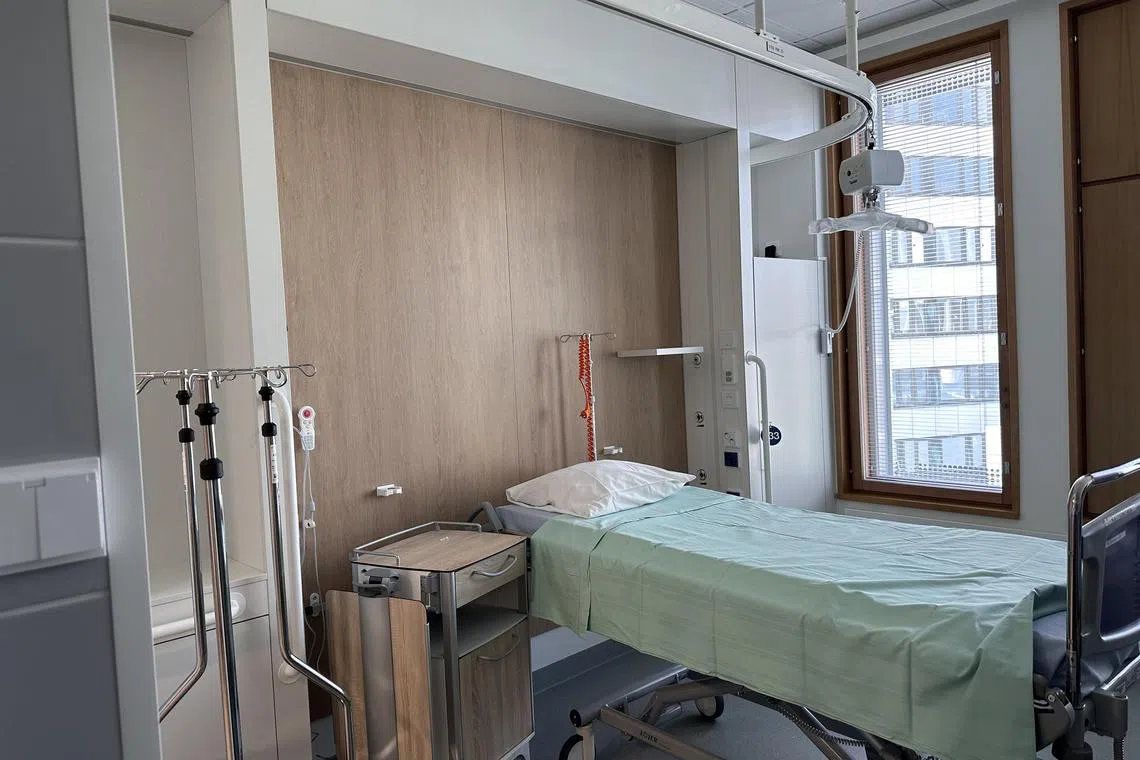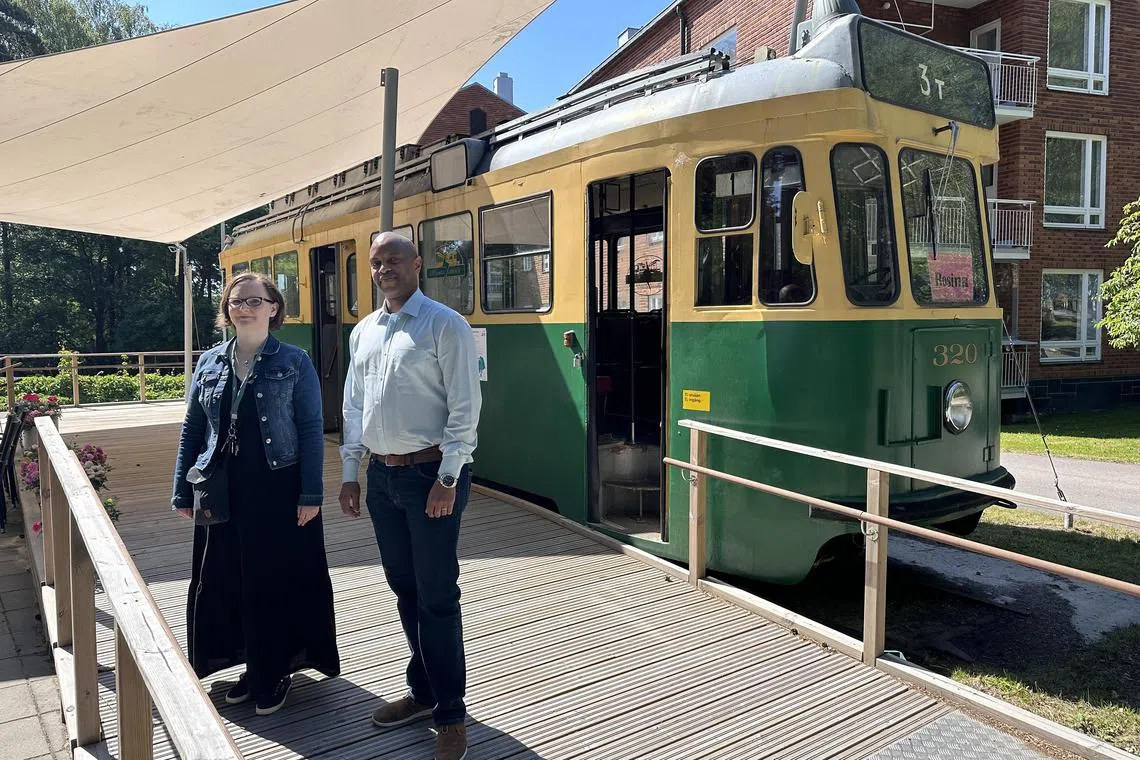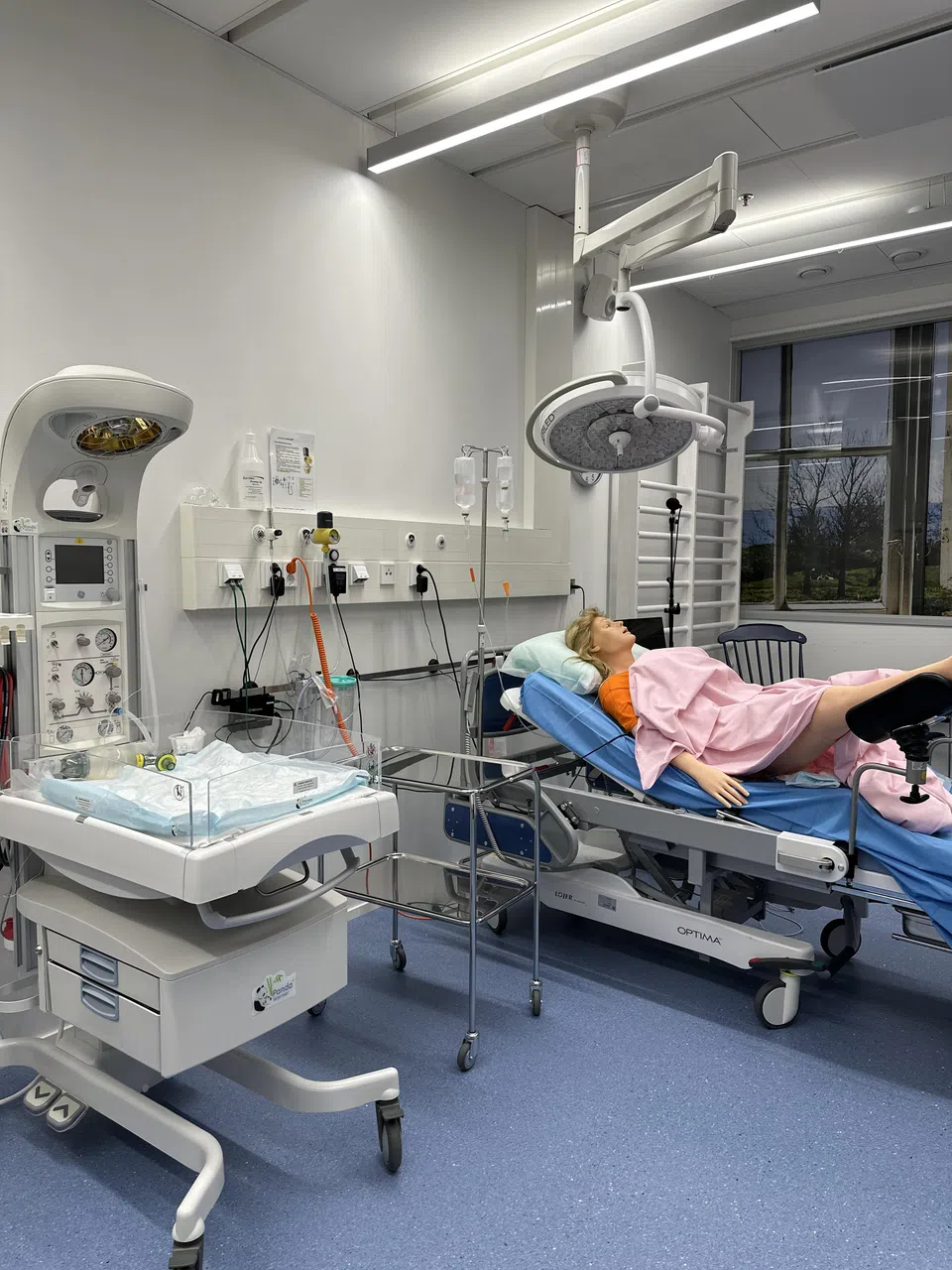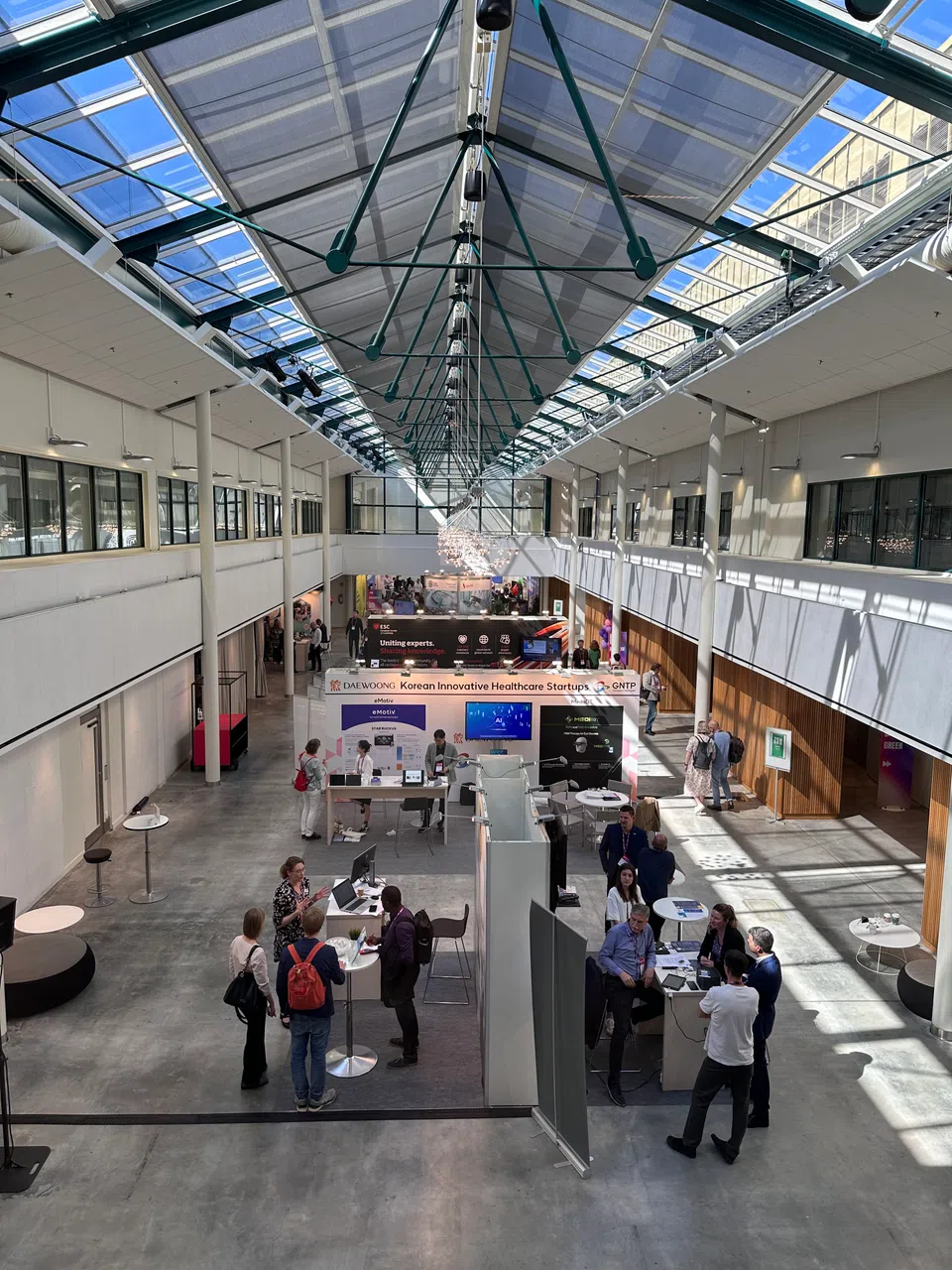Finland banks on health tech to keep seniors cared for at home longer
Sign up now: Get ST's newsletters delivered to your inbox

More than 300 long-term residents live at the centre, which is for pensioners and unemployed persons.
ST PHOTO: JOYCE TEO
HELSINKI - At Kustaankartano Senior Centre, the largest and oldest eldercare centre in the Finnish capital, a decommissioned tram takes centre stage in the courtyard. Residents who are grappling with moderate to severe dementia have been taken on “rides” to wherever they want.
On June 12, when the centre held a party to mark its 70th anniversary, there was even a “tram conductor” to make contact with the passengers and issue them specially printed tram tickets, just like in the good old days.
More than 300 long-term residents live at the centre, which is for pensioners and unemployed persons. Many are aged 85 and above, and almost all have dementia, said the centre’s manager, Ms Sanna Numminen. They are there because they can no longer care for themselves at home.
The centre is in a quiet, park-like setting that belies its other role as a test bed for new digital products and tech solutions. These include smart flooring in the residents’ rooms that can detect falls and the use of Philips smart lighting that starts to dim in the evening to help the residents sleep better.
It is not surprising, as Helsinki is an innovation hub for health technology or health tech, which it is harnessing to enable many of its elderly population to live longer at home. Finland has built a strong public-private ecosystem that connects researchers, clinicians, entrepreneurs and corporates, benefiting not only its own people but also those elsewhere. Finnish health tech companies operate globally, and they export most of their products.
In June, its Ministry for Foreign Affairs, as well as government entities Health Capital Helsinki, Helsinki Partners, and Business Finland invited a group of reporters to Helsinki to see what it has to offer to international research organisations and companies.
Like Singapore, Finland has a small (5.5 million versus Singapore’s 5.64 million) and rapidly ageing population. Both are studying the use of robotics and artificial intelligence (AI) to solve the healthcare challenges ahead.
In 2017, Finland initiated one of the world’s first national AI strategies and action plans to boost AI application. In 2022, it was ranked No. 1 on the Digital Economy and Society Index, which the European Commission uses to track the digital progress of its member states, Dr Paivi Sillanaukee, the Special Envoy for Health and Well-being at Finland’s Ministry of Social Affairs and Health, told reporters on the press trip.
Digitalisation allows more care at home, thus helping to preserve health, she said.
For instance, Finland has had e-prescriptions or prescriptions in electronic format for nearly a decade now, and patients can go to any pharmacy to collect their medicines, she said. Apart from the prescriptions, citizens can view their health data on the country’s Kanta services, Dr Sillanaukee said.
The health data can also be used for various purposes like research, which was sanctioned by an Act Finland passed on the secondary use of health and social data. To support research that utilises human blood and tissue samples, Finland also has biobank legislation since 2012, she said.

Ms Sanna Numminen, manager of the Kustaankartono Senior Centre in Helsinki, with the centre’s head nurse, Mr Mark Kanyingi.
ST PHOTO: JOYCE TEO
Data from the FinnGen research project, which aims to study the genome and health data of 500,000 Finnish individuals, has already been used to identify risk factors for various diseases, for instance.
Dr Silllanaukee said the system is very transparent and a culture of trust was built when people saw how the data was used. The Finnish people are also familiar with and adept at using digital tools.
In Helsinki, not far from the senior centre, future nurses train at the Metropolia University of Applied Sciences’ Simulation Hospital. It is one of the largest simulation hospitals in Europe, where the trainees get to replicate real-world healthcare scenarios at various fully equipped facilities, such as the intensive care unit, operating theatre, delivery room, a home care environment and an ambulance.

One of the largest simulation hospitals in Europe, where the trainees get to replicate real-world healthcare scenarios at various fully equipped facilities.
ST PHOTO: JOYCE TEO
At the HUS Helsinki University Hospital campus, the Meilahti Bridge Hospital that opened in February is the first hospital in Europe to have a state-of-the-art operating suite for the most critical trauma patients, known as the Raptor (resuscitation with angiography, percutaneous techniques and operative repair) room.
On a tour of the facility, HUS’ project director of large hospital development projects Pekka Lahdenne said patients with life-threatening bleeds can undergo investigations like computed tomography scans, angiograms and so on in one location, saving every precious minute.
A short walk from the hospital is Terkko Health Hub, a large and vibrant community of 60 start-ups. They include MedicubeX, which came up with autonomous stations for the self-measurement of vital signs, and Veil.AI – a spin-out from the Institute for Molecular Medicine Finland – which develops privacy-enhancing solutions for sensitive health data.
With privacy protection a key issue in digitalisation, Veil.AI is working on anonymised data.
It also creates synthetic health data, such as an electronic medical record where the personal identifiers have been replaced with fake identifiers. This allows researchers to safely reuse data to advance research without exposing patient identities.

The Radical Health Festival was held in Helsinki, Finland for the first time in June this year.
ST PHOTO: JOYCE TEO
Both were among the companies that participated in the Radical Health Festival, a global conference on digital health that was held for the first time in June in Helsinki. AI, active ageing, cyber security and healthcare digitalisation were some of the topics that were discussed there.
Digitalisation is crucial in that, like Singapore and other countries, Finland faces a labour shortage exacerbated by the pandemic. Ms Linda Soikkeli, a senior specialist at Finland’s Ministry of Social Affairs and Health, said: “Personnel issues are an absolute major problem at the moment, which is why we’re pushing for the speeding up of digitalisation and eHealth.”
Digitalisation would allow for easier access to primary care as well as services in people’s homes, she said. It would enable more equitable access to healthcare.
She said the ministry’s research showed that Finland will never have the same level of staffing for health and social care as it does right now.
“So, we need to come up with new ways to still provide services because that’s the last thing we will start cutting on. We do not want to cut our basic services,” said Ms Soikkeli.
“I think that’s why we have such a strong incentive for innovation right now. That’s why there’s so much happening in the country everywhere.”



